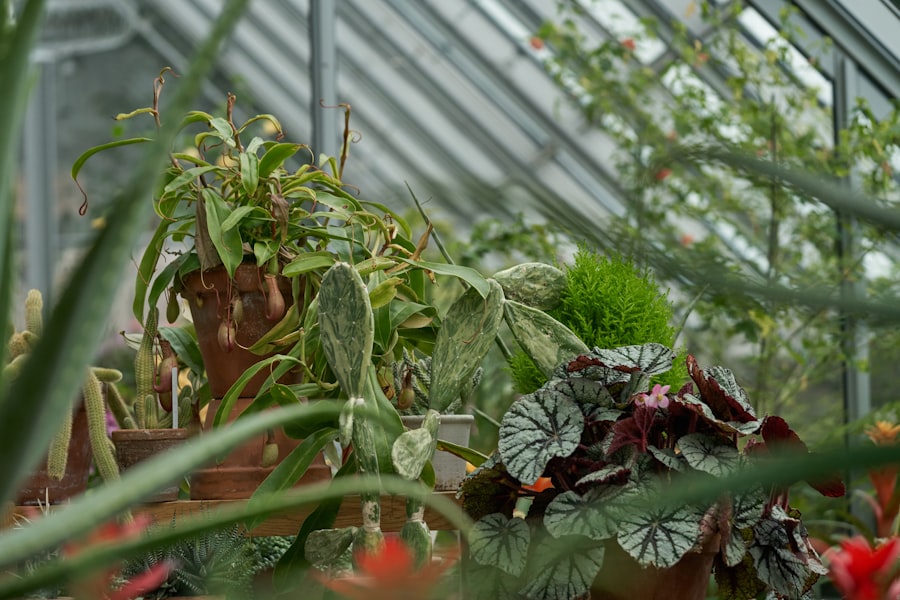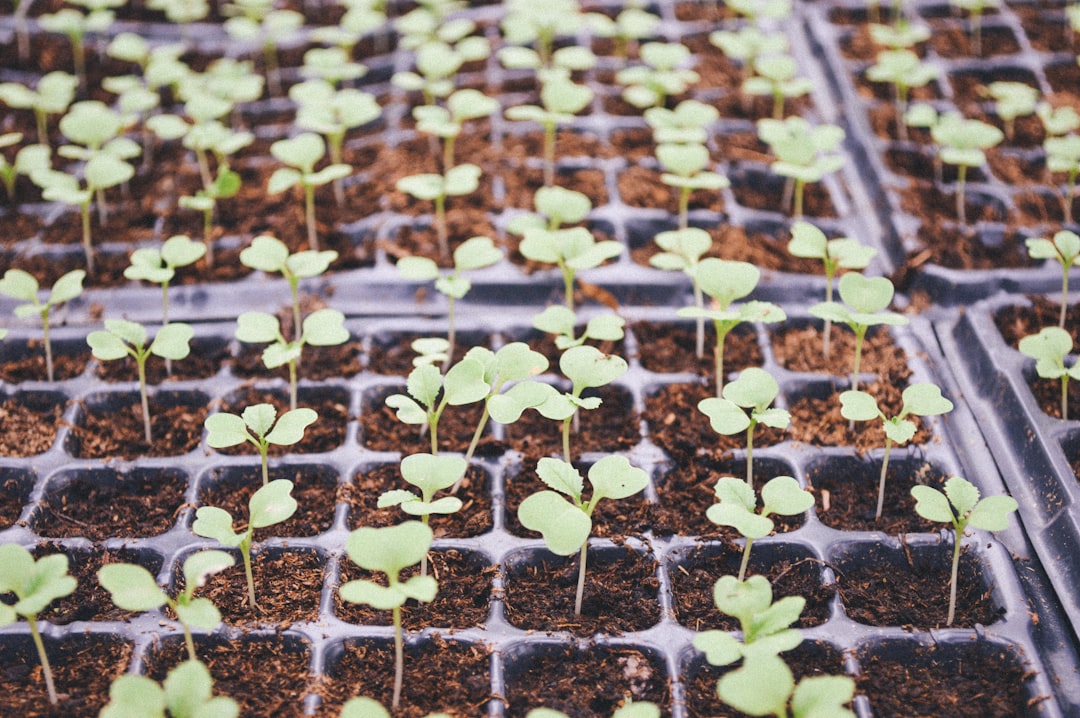In recent years, urban farming retreats have emerged as a transformative force in cities around the globe. These retreats offer a unique blend of agriculture and relaxation, allowing city dwellers to reconnect with nature while cultivating their own food. As urban populations continue to swell, the need for sustainable practices becomes increasingly urgent.
Urban farming retreats provide a solution that not only addresses food production but also fosters a sense of community and well-being. You may find yourself drawn to these spaces, where the hustle and bustle of city life fades away, replaced by the soothing sounds of nature and the satisfaction of growing your own food. The concept of urban farming retreats is not merely a trend; it represents a shift in how we perceive food production and consumption in metropolitan areas.
These retreats often feature workshops, hands-on gardening experiences, and educational programs that empower individuals to take charge of their food sources. As you immerse yourself in this environment, you’ll discover the joy of planting seeds, nurturing plants, and ultimately harvesting the fruits of your labor. This connection to the land can be both grounding and liberating, offering a respite from the fast-paced urban lifestyle that many find overwhelming.
Key Takeaways
- Urban farming retreats are on the rise as people seek to reconnect with nature and sustainable food production in urban areas.
- Sustainable food production in urban areas provides benefits such as access to fresh, healthy produce, reduced carbon footprint, and increased food security.
- Urban farming retreats promote community engagement by providing a space for people to come together, learn about sustainable farming practices, and connect with their local food system.
- Technology plays a crucial role in urban farming retreats, enabling efficient use of space, water, and energy, as well as monitoring and managing crop growth.
- Challenges in urban farming retreats, such as limited space and access to resources, can be addressed through solutions like vertical farming, hydroponics, and community partnerships.
Benefits of Sustainable Food Production in Urban Areas
Sustainable food production in urban areas offers a multitude of benefits that extend beyond just providing fresh produce. One of the most significant advantages is the reduction of carbon footprints associated with food transportation. When you grow food locally, you eliminate the need for long-distance shipping, which not only saves energy but also reduces greenhouse gas emissions.
This localized approach to food production contributes to a healthier planet, making it an essential component of urban sustainability efforts. Moreover, urban farming promotes biodiversity by encouraging the cultivation of various crops and plants. You may find that these diverse ecosystems attract beneficial insects and pollinators, which are crucial for maintaining healthy gardens.
By participating in urban farming retreats, you contribute to this biodiversity while also enjoying the benefits of fresh, organic produce. The act of growing your own food fosters a deeper understanding of where your meals come from and encourages healthier eating habits. As you savor the flavors of freshly harvested vegetables, you’ll appreciate the connection between your efforts and the nourishment they provide.
How Urban Farming Retreats Promote Community Engagement

Urban farming retreats serve as vital hubs for community engagement, bringing together individuals from diverse backgrounds who share a common interest in sustainable living. These spaces often host workshops, events, and volunteer opportunities that encourage collaboration and connection among participants. When you join an urban farming retreat, you become part of a larger movement that values community resilience and cooperation.
This sense of belonging can be incredibly empowering, as you work alongside others to cultivate not just crops but also relationships. Additionally, urban farming retreats often focus on education and skill-sharing, creating an environment where knowledge is freely exchanged. You might find yourself learning about permaculture techniques or organic gardening practices from fellow participants or experienced instructors.
This collaborative atmosphere fosters a sense of ownership over the land and its resources, encouraging everyone involved to take pride in their contributions. As you engage with others in this setting, you’ll likely form lasting friendships and connections that extend beyond the retreat itself.
The Role of Technology in Urban Farming Retreats
| Metrics | Data |
|---|---|
| Number of urban farming retreats | 25 |
| Percentage of retreats using technology | 80% |
| Types of technology used | IoT sensors, automated irrigation systems, vertical farming systems |
| Impact of technology on yield | Increased by 30% |
Technology plays a crucial role in enhancing the effectiveness and efficiency of urban farming retreats. From innovative irrigation systems to advanced soil monitoring tools, modern technology allows urban farmers to optimize their growing conditions and maximize yields. You may encounter smart gardening solutions that help track plant health or automated systems that simplify watering schedules.
These advancements not only make farming more accessible but also empower you to make informed decisions about your gardening practices. Moreover, technology facilitates community engagement through online platforms and social media. Many urban farming retreats utilize these tools to share resources, promote events, and connect with participants.
You can easily stay updated on upcoming workshops or volunteer opportunities through social media channels or dedicated websites. This digital connectivity enhances the sense of community surrounding urban farming retreats, allowing you to engage with like-minded individuals even when you’re not physically present at the retreat.
Challenges and Solutions in Urban Farming Retreats
While urban farming retreats offer numerous benefits, they are not without their challenges. One significant hurdle is limited space in densely populated areas. As cities expand, available land for farming becomes scarce, making it difficult for retreats to establish themselves.
However, innovative solutions such as vertical farming and rooftop gardens are emerging to address this issue. By utilizing underutilized spaces creatively, urban farmers can maximize their growing potential while contributing to the overall greening of urban environments. Another challenge is access to resources and funding for these initiatives.
Many urban farming retreats rely on grants or community support to sustain their operations. You may find that local governments or organizations are increasingly recognizing the value of these retreats and are willing to provide assistance. By advocating for policies that support urban agriculture and engaging with local stakeholders, you can help create a more favorable environment for these initiatives to thrive.
The Impact of Urban Farming Retreats on Food Security

Urban farming retreats play a pivotal role in enhancing food security within cities. By providing access to fresh produce and promoting self-sufficiency, these retreats empower individuals to take control of their food sources. When you participate in an urban farming retreat, you contribute to a local food system that reduces reliance on external suppliers and mitigates the risks associated with food shortages or price fluctuations.
Furthermore, urban farming retreats often prioritize education around nutrition and sustainable practices. You may find yourself learning about seasonal eating or how to preserve food effectively, equipping you with valuable skills that can enhance your family’s food security. As more individuals engage with these initiatives, communities become more resilient in the face of challenges such as economic downturns or environmental crises.
The Future of Urban Farming Retreats
The future of urban farming retreats looks promising as awareness around sustainability and local food production continues to grow. With increasing interest from individuals seeking healthier lifestyles and stronger community connections, these retreats are likely to expand in both number and scope. You may witness more cities embracing urban agriculture as a viable solution to various social and environmental issues.
As technology continues to evolve, urban farming retreats will likely incorporate even more innovative practices that enhance productivity and sustainability. From aquaponics systems to mobile apps that assist with gardening tasks, the integration of technology will further empower participants like you to engage meaningfully with their food sources. The potential for collaboration between urban farmers and local businesses may also increase, creating new opportunities for economic growth within communities.
How to Get Involved in Urban Farming Retreats
Getting involved in urban farming retreats is easier than you might think. Start by researching local initiatives in your area; many cities have established programs or organizations dedicated to promoting urban agriculture. You can attend workshops or volunteer days at these retreats to gain hands-on experience while meeting others who share your passion for sustainable living.
Consider joining online communities or social media groups focused on urban farming; these platforms often share valuable resources and information about upcoming events or opportunities for involvement. Whether you’re looking to learn new skills or simply connect with like-minded individuals, engaging with these communities can enrich your experience in urban farming retreats. In conclusion, urban farming retreats represent a powerful movement towards sustainable living and community engagement in our cities.
By participating in these initiatives, you not only contribute to local food systems but also foster connections with others who share your values. As you explore the world of urban farming retreats, you’ll discover a wealth of opportunities for personal growth, community building, and environmental stewardship—making it an enriching experience for all involved.
